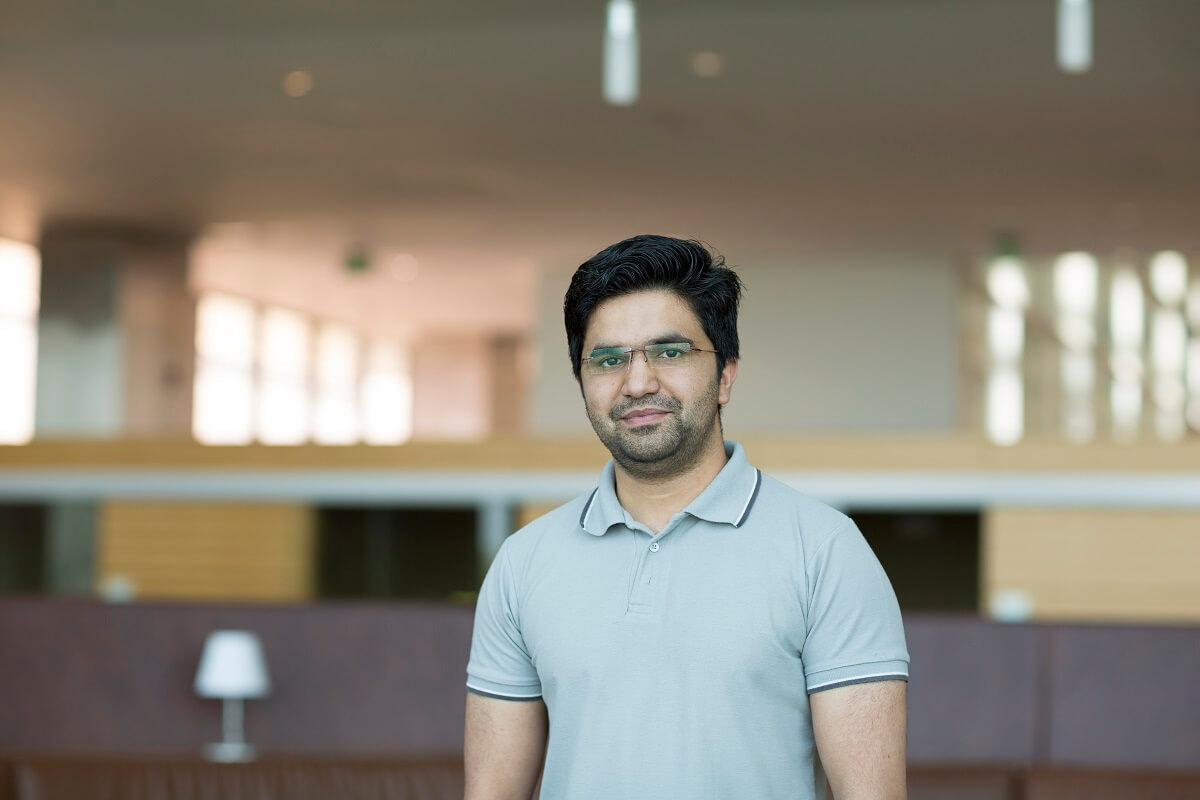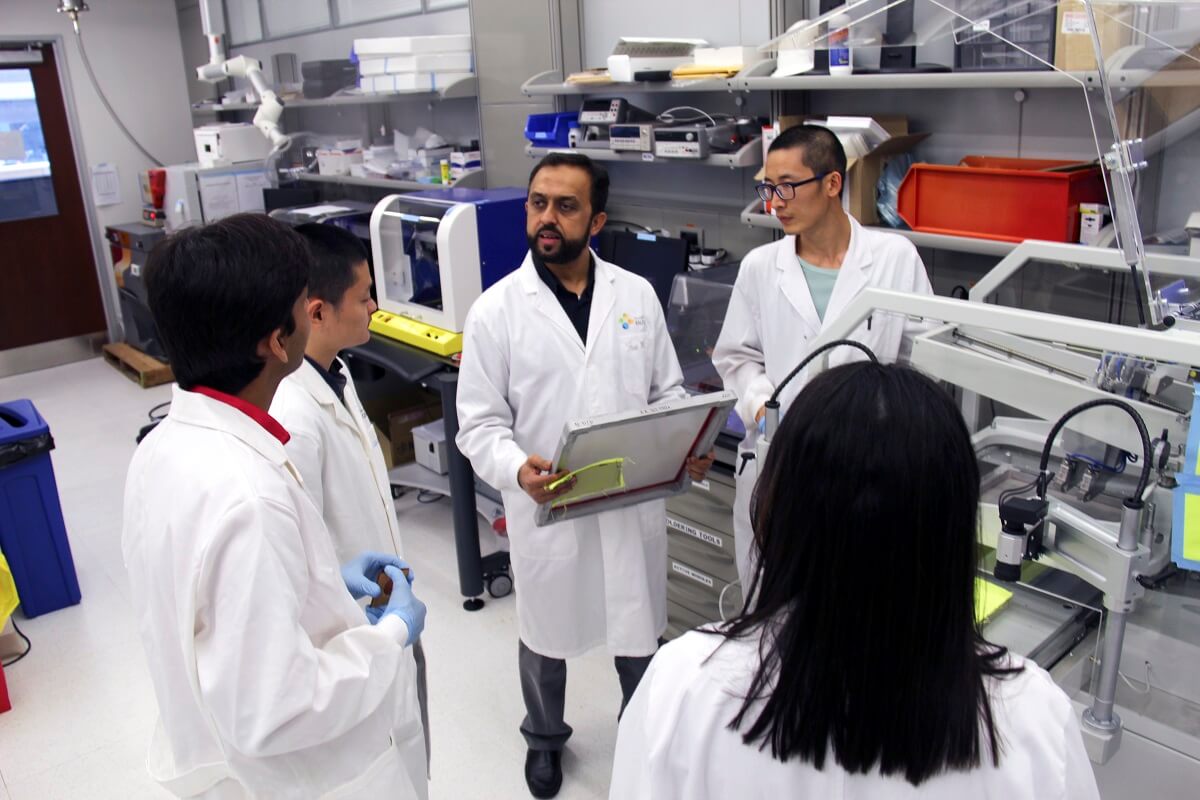KAUST Ph.D. student wins Three Minute Thesis competition

KAUST Ph.D. student Muhammad Akram Karimi recently won the Three Minute Thesis competition held during the IEEE MTT International Microwave Symposium in Boston, Massachusetts, U.S. Photo by Lilit Hovhannisyan.
By David Murphy, KAUST News
Muhammad Akram Karimi, a fourth-year KAUST Ph.D. student working in the Integrated Microwaves Packaging Antennas & Circuits Technology (IMPACT) Lab headed by Associate Professor Atif Shamim, won the Three Minute Thesis (3MT) competition held during the IEEE Microwave Theory and Techniques Society's International Microwave Symposium (IMS2019) in Boston, Massachusetts, U.S, in early June. IEEE IMS has been taking place for 60 years, and it is the flagship conference for microwave engineers and scientists.
The 3MT format, which was developed by the University of Queensland, Australia, in 2008, aims to improve and refine students' academic, presentation and research communication skills. As per the 3MT competition guidelines, participating students presented and explained their research to attendees in an effective manner over a three-minute period.
Karimi's presentation titled "Making Materials Smart Using Microwaves" won from a pool of 23 fellow student finalists.
"This year, 60 papers were initially shortlisted for the 3MT competition," Karimi noted. "For further screening, we had to make a 30-second short video about the research work, which was reviewed by the Technical Program Committee (TPC). Based on TPC recommendations, 23 candidates were shortlisted to compete at the conference venue. Getting shortlisted among the top 23 candidates [was] an honor in itself."
"Presenting one's work to a huge audience with a wide range of backgrounds in just three minutes is the essence of the competition," he continued. "Standing first [among] the candidates from high-profile universities like Georgia Tech and MIT gives me a...good feeling. I am humbled as well as honored to receive this prestigious award."

KAUST Associate Professor Atif Shamim (center), Ph.D. student Muhammad Akram Karimi's supervisor, works on campus in his Integrated Microwaves Packaging Antennas & Circuits Technology Lab with his students. Photo by Meres J. Weche.
Karimi's KAUST thesis research is focused on developing low-cost in situ microwave sensors with various applications in the oil and water industries. The speciality of these sensors is that they can be printed on any surface, such as on a pipe or on pipe joints. This helps in realizing low-cost sensors that are conformal to the surfaces on which they are printed.
In the first part of his thesis, Karimi—in collaboration with Saudi Aramco—tackled an important problem for the oil industry , which is the detection of the water fraction mixed in oil during the oil production process. The water fraction sensor Karimi developed can be printed directly on a pipe's surface and functions with high accuracy in a non-intrusive manner without the need of bulky mixers. The innovative design won the best paper award at IEEE IMS2016. Karimi was also part of the team that produced the invention which received the King Prize for the most useful invention for the Kingdom in late 2018.

As part of his thesis work, KAUST Ph.D. student Muhammad Akram Karimi produced a sensor for detecting the water fraction mixed in oil during the oil production process. Image courtesy of Shutterstock.
The latter part of Karimi's thesis—which was also the the theme of his 3MT presentation—focuses on the design of a smart pipe joint which has an integrated microwave leak detector for the oil and water industries. These industries have long pipelines measuring hundreds of kilometers that rely on manual inspections. Karimi's invention can detect minute leaks in pipes and can inform authorities about leak locations in an automated fashion. The technology may be a game changer in preserving oil and water resources.
"By enabling early leakage detection, we will not only be able to preserve precious water resources, but [we will] also reduce safety risks associated with oil leaks," Karimi explained.
"I am very proud that my Ph.D. student's work has been recognized at a very competitive and prestigious platform," stated Shamim. "This work is useful for the most important industry in the Kingdom, [and it] shows that KAUST is committed to solving the important problems in the Kingdom and is contributing towards the economic development of the Kingdom, in addition to imparting quality education and contributing to high-quality research."

